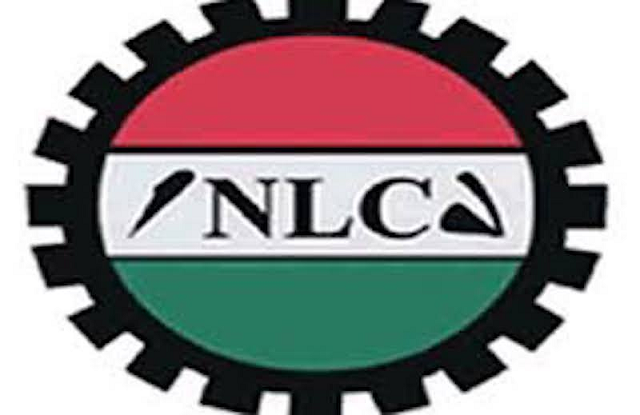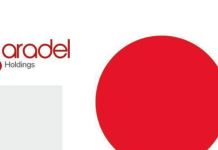Nigeria Labour Congress (NLC) has given the federal government September 28 deadline to reverse the recent increases in the price of petrol and electricity tariffs or face nationwide industrial action.
This was part of the decisions reached yesterday’s Central Working Committee (CWC) meeting held in Abuja.
The federal government had approved an increase in the price of petrol and granted the electricity distribution companies the approval to raise electricity tariffs.
At the CWC meeting, NLC vowed to shut down activities in the country if at the end of the September 28 deadline, the federal government fails to utilise the opportunity to address its demands and reverse the price increase.
It resolved to convene its National Executive Committee (NEC) meeting on September 22 to ratify the decision of the CWC on the 14-day strike ultimatum.
The Trade Union Congress (TUC) had on Monday earlier issued a seven-day strike ultimatum, urging the federal government to reverse the increases, describing the government’s action as unwarranted and insensitive.
Addressing journalists yesterday at the end of the CWC meeting in Abuja, NLC President, Mr. Ayuba Wabba, said: “We met to discuss the twin-challenge of the increases in the electricity tariffs and pump price of petroleum products and clearly speaking, we have looked at particularly workers that earn wages.
“So, it was decided that we issue the statutory two weeks’ notice to the federal government to reverse those decisions and in our own case, the NEC also has to sanction it if you want to undertake such actions.
“So, we have summoned the NEC to meet on Tuesday, September 22, for the action that is been proposed for 28th of this month. So, invariably, this is part of the decision of the Central Working Committee consisting of all Presidents and Secretary Generals of our affiliate unions,” he said.
Wabba said the meeting looked at how the price increases have eroded the purchasing power of workers, and importantly, how it has eroded the gains of the N30,000 minimum wage, which many workers have not even earned.
“Many people are at pains now,” he said, explaining: “The impact of the electricity tariffs is the fact that those in category ‘A,’ which they have increased their tariffs are the manufacturers, which will transfer the cost on goods and services. That is why the cost of goods and services are also going up.”
Wabba also said that the CWC meeting discussed the outcome of meeting with the government-held on Tuesday to find out if there was anything on the table.
“We told them clearly that there was nothing and because of all of these, people thought that certainly, these issues are issues we have to respond to and fundamentally, these are issues that will put many people into poverty, especially the working poor,” he said.
Wabba had while stating the position of NLC at the dialogue session with federal government team on Tuesday condemned the recent hike in the cost of fuel and electricity tariffs by the government, saying that it has further aggravated the economic hardship facing Nigerians.
He said that NLC’s position is that government should put on hold the implementation of the new price increases on fuel and electricity tariff until it is able to address some of the basic issues bedevilling the power and electricity subsectors.
The NLC president said Nigerian workers who have lost their jobs and means of livelihoods due to COVID-19- imposed challenges are being forced to make further sacrifices through an unbearable increase in prices of fuel and electricity tariffs.
Wabba insisted that the Nigeria Electricity Regulatory Commission (NERC) should ensure that power sector firms, especially the distribution companies (Discos) improve on their efficiency.
“Those issues that constitute the price is part of the inefficiency in the system which government hitherto has been paying and christened subsidy. “Government cannot transfer the inefficiency to the people. Nigeria should refine its products.”
He added: “At this point, what do you have on the table to cushion the effects on workers, their families because they have been pushed to the wall and already at the edge. Do you have anything for us? “So, that we can now say that despite these challenges, this is what I have for Nigerian workers that they can be able to have something that can cushion this effect for them.
“Already the value of minimum wage had been eroded. The purchasing power parity, when you compare with all West African countries, we are already on the ground. That is the reality. In Ghana, compare their minimum wage with our own; in all West Africa countries, including Niger Republic that has just started refining recently, they are now serving us with products. That is not how we ought to be.”
Ngige: TUC’s Seven-Day Notice Invalid
Meanwhile, the Minister of Labour and Employment, Senator Chris Ngige, yesterday dismissed the seven-day ultimatum given the federal government by Trade Union Congress (TUC) to reverse the new fuel price or face industrial action as invalid.
Answering a question from State House correspondents after a virtual FEC meeting, Ngige described the ultimatum as misplaced because it was wrongly directed.
He said the ultimatum was addressed to President Muhammadu Buhari, in contravention of labour laws, which authorise labour bodies to address such an ultimatum to the labour minister.
“The TUC issue, the seven-day ultimatum was misplaced because they were writing the president and issuing an ultimatum to him.
“The president is not recognised by ILO. The competent authority for this nature of dispute in Nigeria resides in the man who oversees them, which is whoever is the Minister of Labour and Employment,” he said
Ngige also said FEC yesterday approved a new national policy on occupational safety and health tagged National Policy on Occupational Safety 2020.
He also explained that the policy was a derivative of the provisions of both the 1999 Nigerian Constitution as well as the International Labour Organisation’s (ILO) convention.
He said: “The Federal Executive Council today (yesterday) approved a new policy on occupational safety and health 2020. This policy is designed to make for the safety and health of workers at workplaces.
“It derives from the main grund norm law of the 1999 Constitution as amended, which in Section 17 (3c) prescribes that the Nigerian state shall make laws and bye-laws for the preservation of the health and well-being of workers in the workplaces; men and women at work.
“It also derives from the ILO convention 155, which Nigeria has also domesticated. Again, that talks about making the workplace conducive and ensuring the health and well-being of workers.”
Ngige who said the last time the policy was reviewed was 14 years ago, added that this new 2020 policy would be reviewed every three years.
He said such a periodic review had become imperative because the world had gone digital.
“The last policy we have was approved in 2006 which makes it exactly 14 years since that was approved by the Federal Executive Council and that is the policy we have been working on. But you know that 14 years is a long span in the life of any law so in the course of operation, certain issues have been thrown up.
”The world has gone digital, workplace mechanism and hazards have been changing and it was, therefore, necessary that we do a new policy.
“This policy we did now is what you call repeal and replace and it takes care of all that is needed for now, for the health of Nigerian workers,” he said.
The minister explained that the new policy gives specific roles to some agencies of government, including National Environmental Standards and Regulations Enforcement Agency (NESREA), Nigerian Civil Aviation Authority (NCAA), Nigerian Maritime Administration and Safety Agency (NIMASA), Standards Organisation of Nigeria and the Federal Ministry of Health.
“Everybody has his own role now because it’s a cross-cutting situation as most ministries, departments and agencies of government are involved,” he said.
Source: THISDAY












